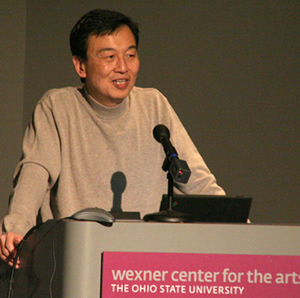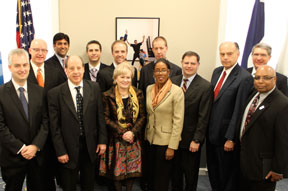SuperViz '94 Showcases Excellent Science -- Ohio Research Featured in Supercomputing Video
The Ohio Supercomputer Center (OSC) announces that five science video animations produced at the center were among the 34 selected for the International Supercomputing '94 Conference showcase video, SuperViz '94, as excellent examples of scientific research.

 The proliferation of widely accessible graphical processing units is changing the landscape of supercomputing, offering researchers multiple benefits — and a few challenges, according to Wen-mei Hwu, Ph.D., who recently presented “The Future of Scalable Computing with GPU Computing” as an invited guest for the Ohio Supercomputer Center’s Computational Science Lecture Series.
The proliferation of widely accessible graphical processing units is changing the landscape of supercomputing, offering researchers multiple benefits — and a few challenges, according to Wen-mei Hwu, Ph.D., who recently presented “The Future of Scalable Computing with GPU Computing” as an invited guest for the Ohio Supercomputer Center’s Computational Science Lecture Series.